“I Do What Happens”: Anscombe and Winogrand
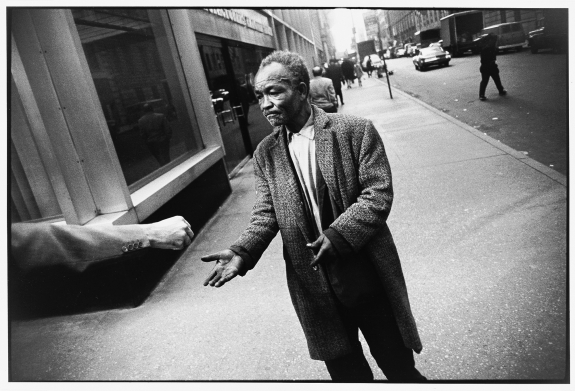
So there is a sense in which Winogrand’s personal crisis expresses a theoretical position, just as there’s an equally important sense in which that theoretical position and the alternatives to it (what it might mean to intend something, and especially what it might mean not to or what it might mean for your reasons to be treated as causes) were becoming at the time of that crisis central to literary theory and aesthetic production. Indeed, in what is now an aesthetic and a political as much as a philosophical sense, the structure of intentional action has recently emerged as a crucial issue.
Minds in the Dark: Cinematic Experience in the Dardenne Brothers’ Dans l’Obscurité
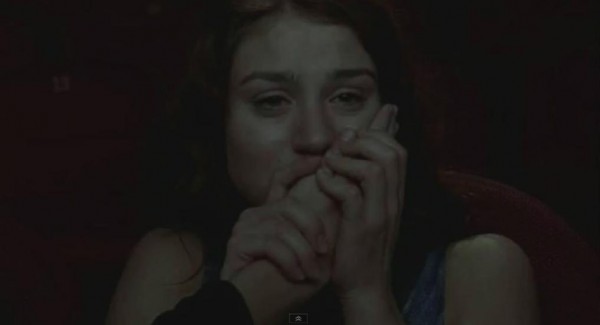
I do not mean here to refer to the issue familiar in philosophy since Plato, the way the psyche can be shaped in very different ways by the education it receives and by the context of some particular regime. Democratic souls for democracies; oligarchic souls for oligarchies. Plato and many others keep the soul’s structure constant in such accounts, concentrating on the effects of the formation process on that structure. I think something much more radical is implicitly suggested by these films—that what counts as such a structure is at issue and open to real variation. This is particularly true of the psychological structure assumed in “explaining actions” or “assigning or accepting responsibility.” How we have come to think of that issue, the range of possible answers, may, if the brothers are right, have more to do with the imperatives of a particular social organization of power than it would be comfortable to admit.
Action and Standing a Round

If I understand Emerson correctly, his allegory of photography contends that, while photography may look like shopping at a flea market, it’s really more like standing a round at the bar.
What We Worry About When We Worry About Commodification: Reflections on Dave Beech, Julian Stallabrass, and Jeff Wall

In an advertisement, the only intention that matters is to sell a product. All manner of decisions can and do saturate an advertising image, but these are subordinate to the purpose (Zweck) of selling the product. In a successful work of art, all kinds of decisions are subordinate to a larger intention as well; but that intention is analytically identical with the meaning (Zweckmäßigkeit) of the work, so it makes sense to speak of the work as a whole as saturated with intention. As we saw, art-commodities may well bear the marks of industrial processes. A work of art may, on the other hand, choose to exhibit them, which is a different matter altogether. We can tell the difference between bearing marks and exhibiting marks because works of art tell us how to tell the difference, each time.
Postscript: on Some Responses to “Would Vanessa Place Be a Better Poet if She Had Better Opinions?”
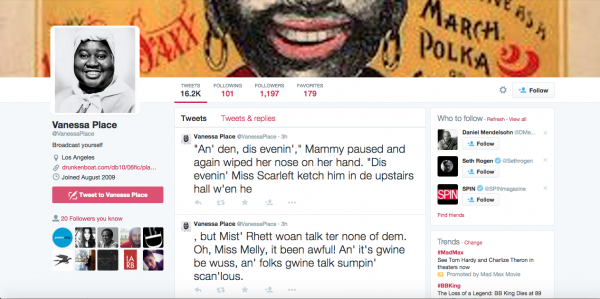
Everyone involved in this discussion appears to live by the difference between art and life. To my knowledge, no one has suggested that Gone with the Wind is something other than a novel or that Tweeting Gone with the Wind is something other than a work of art. (No reader misrecognized it as a different kind of Twitter account – for example, a moment by moment record of the passing thoughts of Vanessa Place). Nor has anyone started a liberation movement to protect the rights or advance the interests of fictional persons.
Reparations and other Right-Wing Fantasies
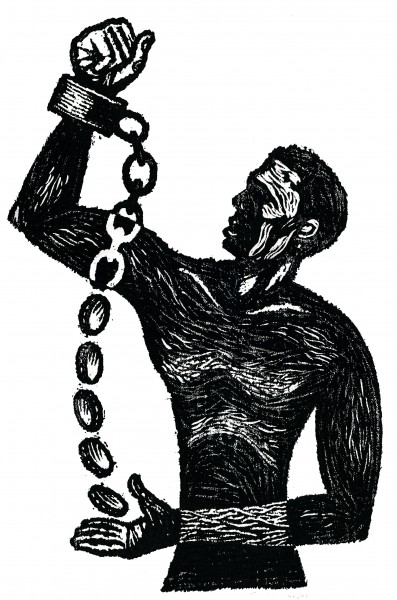
But in a world where inequality has been increasing and where the fastest growing jobs are mainly the lowest paying ones, why should we be inspired by a vision that instead of promising to pay people better, promises only to make sure that the badly-paid are not disproportionately black or Latino? And that men are just as fucked as women? It’s easy to see the attractions of bourgeois anti-racism and bourgeois feminism for white women and people of color seeking to establish themselves among the (shrinking) bourgeoisie. From their standpoint we should be as concerned that black, Latino, or female-owned businesses are relatively poorer than their white or male counterparts as we are with the growing power of employers to obtain labor on increasingly exploitative terms.
The Case Against Reparations

The deeper appeal of reparations talk for its proponents is to create or stress a sense of racial peoplehood as the primary basis for political identity. This movement’s psychological project is grounded on two beliefs: first, that rank-and -file black people suffer from an improper or defective sense of identity, and second, that an important task of political action is to restore or correct racial consciousness that the legacy of slavery is supposed to have distorted or destroyed.
Identity Politics: A Zero-Sum Game

This doesn’t mean that gay marriage isn’t a good thing, and it doesn’t mean that we shouldn’t be vigilant in fighting all kinds of discrimination. It just means that fighting discrimination has nothing to do with fighting economic inequality, and that the commitment to identity politics has been more an expression of our enthusiasm for the free market than a form of resistance to it. You can, for example, be a feminist committed to equal pay for men and women and also be committed to equality between management and labor but, as the example of everyone who’s ever campaigned against the glass ceiling shows, you don’t have to be and aren’t likely to be.
Issue #18: The Subject in Culture
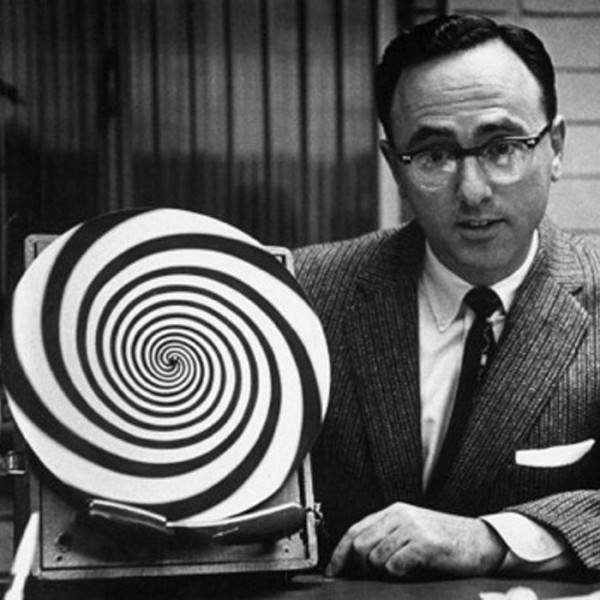
The subject of trained artistic gesture or of the ganzfeld chamber; understanding itself within liberal ideology or within a crisis of man. This issue considers the relation of the subject to various cultures—psychological, political, historical.
Max Horkheimer and The Sociology of Class Relations
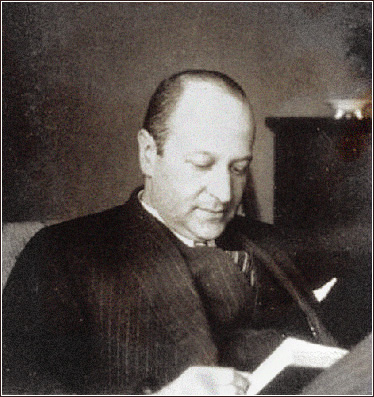
In the fall of 1943 Max Horkheimer composed multiple drafts of an essay entitled “On the Sociology of Class Relations.” The essay was intended for inclusion in the collaborative project with Theodor W. Adorno which came to be called The Dialectic of Enlightenment. One indication that the essay was crucial to their project was that Horkheimer solicited several responses to the working drafts including comments from Franz Neumann and Herbert Marcuse (on the East coast) and Friedrich Pollock and Adorno (in Los Angeles with Horkheimer).
Here for the first time is Horkheimer’s original essay in full and in its original English-language format plus five contemporary responses.
